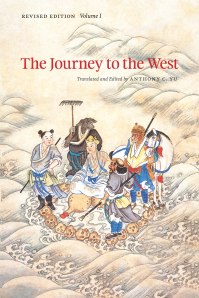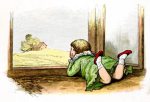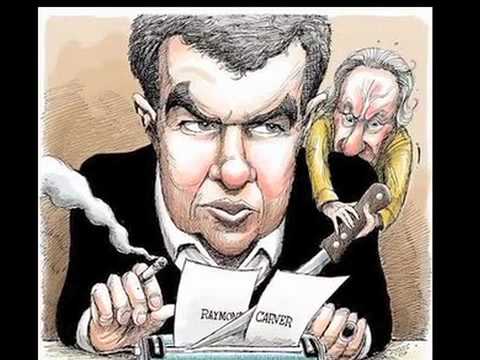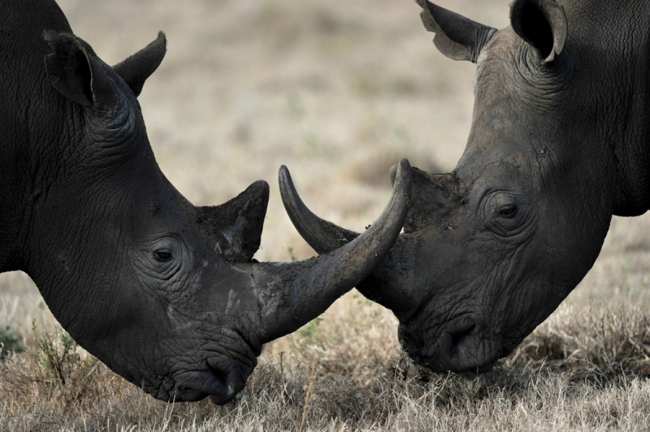At an initial glance, Beowulf may strike a reader as entirely devoid of romance and sensuality. The heterosexual conventions seen in other ancient epics: marriage, heterosexual sex, and pregnancy are largely invisible, though we know that they exist; the marginal presence of wives and the survival of the warrior tribe’s lineage provide evidence of heterosexual relationships. These relationships are largely understated and marginal. (Lees, 140) At a second glance, it becomes clear that Beowulf is not devoid of sensuousness at all; the most sensuous sections of Beowulf are simply not classic scenes of heterosexual romance, but scenes of violence and power dynamics. The homoerotic undertones of Beowulf can be read as evidence of the epic’s warrior culture’s valuation of men, particularly of physicality of the male body. The most emotive and sexual scenes are depiction of battles and the scenes between king and warrior. The language in these scenes reveal what is most valued in the warrior culture of Beowulf. While the epic celebrates male-male relationships, warrior culture, valorous deeds, and masculine power, the ending of the epic raises questions about those very same cultural practices. Beowulf’s failure to produce a biological heir, and his misguided determination to do battle even after he has aged results in the destruction of his kingdom. (Lees, 141) His adherence to the value system of his culture lead to the demise of his people. The narrative of Beowulf reads as both a celebration and criticism of a patriarchal warrior culture.
The most overtly sexualized scenes occur when Beowulf is engaging in battle. While these scenes are particularly action packed, these scenes are also narrated with sensuous language that is largely absent in the rest of the narrative. In his fight with Grendel, Beowulf is unable to penetrate him with his sword, “[The] best iron in the world, the sharpest blade, /could not harm him, the evil demon, /not touch him at all.” (Beowulf, 95) While the sword acts as a surrogate for the penis, penetration would signal conquest. Because Beowulf’s proxy phallus is unable to pierce Grendel, Beowulf fights Grendel with his bare hands. “That Hygelac’s kinsman, the bold-hearted man, / had him in hand. It was hateful to each/ that the other lived. / The terrible creature took a body wound there; a gaping tear/ opened in his shoulder; tendons popped, / muscle slipped the bone. Glory in battle / was given to Beowulf.” (Beowulf, 95) This “gaping tear” seems to represent the forceful creation of a vagina. Because Beowulf could not penetrate Grendel with his phallic sword, he entirely feminizes Grendel. This battle reads much like a rape scene. The same is true of the following battle scene with Grendel’s mother.
This scene is particularly striking because it is the most intense female-male interaction in which Beowulf participates. Initially Grendel’s mother is portrayed as a lesser opponent to her son, yet her battle with Beowulf is much more drawn out and dramatic. (Puhvel, 81) This fight also has distinctly sexual undertones. (Acker, 708) The importance and value of the scene is highlighted with incredibly sensual and active language: “Now that he was battle-furious, / [he] threw up his opponent so she fell to the ground. / Up again quickly, she gave him hand-payment / with a terrible crush, again grabbed him tight.” (Beowulf, 139) This blow-by blow fighting is incredibly different from the fight scene with Grendel. The Grendel-Beowulf scene only lasts a few lines before he is defeated. (Puhvel, 82) In that scene Beowulf is very much the aggressor and conqueror, while Grendel seems to be a more passive party. In contrast, Grendel’s mother tries several times to penetrate Beowulf. “She sat on her hall-guest and drew her broad knife /a sharp weapon, to buy back her son, / her only kinsman. Across his chest / lay the iron net; it saved his life / as she hacked and stabbed, would give her no entry.” (Beowulf, 139) In this case, Beowulf proves impenetrable and thus maintains his masculinity and power. His opponent does not prove as lucky,
“Then he saw among the armor a victory bright blade / made by the giants, an uncracking edge, /…longer and heavier than any other man / could ever have carried in the play of war-strokes, /…The bold Scylding drew it from its magic scabbard, /savage in battle-lust, despairing of life, / angrily raised the shearer of life-threads, / swung hard on her throat, broke through he spine, / halved the doomed body.” (Beowulf, 139)
Beowulf succeeds in entirely penetrating her body, to the point that he exposes her womb. In order to do so he uses a sword of giant proportions. While Grendel’s mother is supposedly a woman, her monster status brings into question the physicality of her sex. She is described as “in the likeness of a woman,” (Beowulf, 127) which suggests that her sex is not definite. Thus, this cannot be read as a firmly heterosexual encounter.
It is clear by the sensual nature of both scenes that success in physical battle was valued and celebrated in this warrior culture. Deeds won a warrior respect and power. (Drout, 202) In both of these battles, the warrior body is treated as conqueror or conquered, penetrator or penetrated. Valor and strength, both traditionally masculine traits, are the characteristics valued by this warrior society. While men are more highly valued in this culture, their lives are constantly at risk, their strength and valor constantly tested. These men have to continently reaffirm their value to society or die. Beowulf earns his position and right to rule through these deeds. (Drout, 202)
Arguably, the most important male-male bond in Beowulf is between Beowulf and Hrothgar. (Fox, 205) This relationship highlights the two most highly valued men in a warrior society: the king and his champion. The scenes depicting Hrothgar and Beowulf are emotionally rich in comparison with the majority of the narrative. When Hrothgar bids farewell to Beowulf, we observe a man acting without emotional reserve.
“Then that good king, of a noble race, / great Scylding prince, held that best thane / round the neck and kissed him; his tears ran down, / streaked his gray beard. Wise in his age, / he expected two things, but one more strongly / that never again would they look on each other / as in this brave meeting. That man was so dear / that he could not withhold those deep tears; / fixed in his heart by the bonds of thought. / a deep felt longing for the beloved man / burned in his blood.” (Beowulf 157-159)
There are certainly homoerotic undertones in this passage. It seems that Hrothgar desires the body of Beowulf. However this may not be a sexual desire, rather a desire for him to have that body as his own. The warrior cultures values of strength and fierceness cannot be maintained in Hrothgar’s old age. Indeed, he is said to be a good king, until he fails to physically protect his people from Grendel’s attacks. (Drout, 201) “He was one king / blameless in everything, till age took from him / the joy of strength—a thing that harms many.” (Beowulf, 159) If Hrothgar had Beowulf’s strength in addition to his continued line through his sons, he would be considered the perfect king. Once Hrothgar’s physical strength has drained, he is no longer seen as a “blameless” king. This perception can help explain Beowulf’s own continuation of battle after he becomes king.
While Beowulf is a king, he fails to produce his own heir. While he may have married, there is no mention of a wife. It is possibly that Beowulf only nurtured homosocial relationships with men. Robin Fox explains the valuation of male-male bonds over male-female bonds in his chapter “In the Company of Men: Tribal Bonds in Warrior Epics”: “Males hunting or fighting together had to develop a special kind of trust that wend beyond simple friendship…the heterosexual bond was ritually downgraded…and exclusive male groups were formed…” (197) Certainly in Beowulf the constant threat of trespassing enemies required men to create strong bonds of trust and loyalty.
We can also see that the marriage bond is downgraded in favor for the king-warrior relationship. This is visible in Hrothgar’s “adoption” of Beowulf to which his wife, Wealtheow nervously objects. (Drout, 201) “Now, my Beowulf, / best of men, I will love you like a son, / cherish you for life. Keep this new kinship / deep in your heart. Nothing I own, / of my worldly goods, would I keep from you.” (Beowulf, 103) Hrothgar’s adoption gives Beowulf a chance of inheriting Hrothgar’s throne even though he is not of the bloodline. The fact that this is a possibly is made clear when Wealtheow protests, reminding Hrothgar he has blood relatives who are strong enough to rule. (Drout, 201) “Full well I know / of my gracious Hrothulf that he would rule / the young men in honor, would keep all well, / if you should give up this world before him. / I expect he will want to repay our sons / only with good once he recalls / all we have done.” (Beowulf, 117) Hrothgar fails to consult his wife and consider the implications this adoption could have on their sons. Hrothgar clearly values his alliance with a warrior more than his own marriage with his wife, or even his blood bond with his own biological sons. Their youth makes them deemed temporarily useless in a warrior culture, thus his relationship with Beowulf is more highly valued.
This tension between husband and wife reflects Fox’s views of the opposing desires of men and women in warrior culture: “The heterosexual bond was necessary for reproduction but…also as inimical to the male bond… There was…a constant tension between the demands of the reproductive bond and those of the male bond. Men would be ambivalent about the heterosexual bond insofar as it threatened the male association.” (197) While reproduction is necessary in this society to create a male heir, it also seems to weaken the male himself. Hrothgar must consider the affects his actions have on his family as well as attempt to do what is best for his kingdom. Beowulf avoids this tension by not having children, however this leads to the uncertain future of his own kingdom.
As Beowulf dies after his defeat of the dragon, he mourns the fact that he does not have a male heir: “Now I would want to give to my son / these war-garments, had it been granted / that I have a guardian born from my body / for this inheritance.” (Beowulf, 213) Because Beowulf only engaged, as far as we know, with the male warrior world, he had no means of producing an heir. He was by the standards of his warrior culture, a good king: “I ruled this people / for fifty winters, and there was no ruler / of surrounding nations, not any, who dared / meet me with armies, see out a battle, / make any onslaught, terror, oppression, / upon Geatish men.” (Beowulf, 213) While Hrothgar failed in his age, Beowulf, in the eyes of this culture, has succeeded by continuing to physically protect his people until death. Hrothgar has left sons and nephews who can take his place, while Beowulf must ask his fellow warrior, Wiglaf to succeed him. Whether Wiglaf will be acknowledged remains to be seen. All the treasure he earns in his defeat of the dragon that causes his death is burned with his body, further emphasizing the pointlessness and fruitlessness of Beowulf’s death. The treasure that could give life to his people is destroyed with the leader who failed to give life to a successor.
While this warrior culture encourages the marginalization of all things female, and the celebration of warriors, the two sides need each other in order to survive. Hrothgar seems to acknowledge and accept this. He has both a champion to protect his people and a wife to ensure the future of his kingdom. Beowulf does not seek a champion or a wife but continues to fight until he is at least in his sixties. He plays both the role of warrior and king without foresight. In Beowulf’s strict adherence to the highest values of his culture, he actually endangers the people whom he rules. The narrative of Beowulf reveals its two most important players, warrior and king through either sensual or emotive language. These two most valued roles are complicated by the values of warrior culture. Men must be able to protect their people physically and provide a lineage for in the future. Beowulf and Hrothgar provide us with two opposing examples of kingship, a wise yet weak king with sons, and a warrior king without foresight or heirs. Both kings, in an attempt to achieve value within the warrior culture, are unable to entirely succeed. Beowulf, who is celebrated in his own epic poem for his his valor and strength, leaves his people in a worse state that Hrothgar does, even though Hrothgar is viewed as a deficient aged king. Beowulf, in its celebration of a great warrior, illustrates the paradoxical and problematic value system within patriarchal warrior culture.




 g is essential to being a writer. If there weren’t authors the world over walking around bumping into things because their…
g is essential to being a writer. If there weren’t authors the world over walking around bumping into things because their…


